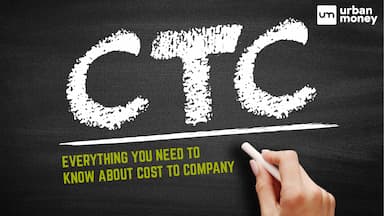Home Loan FAQs
These frequently asked questions answer common enquiries about house loans, including loan transfers, required property paperwork, and tax benefits. They discuss how to cancel a loan early, how to declare it on taxes, and the potential benefits and risks of using Provident Fund (PF) for house loan repayment. They also highlight the importance of property insurance and the ability to receive HRA and home loan benefits. This resource is great for understanding the fundamentals of maintaining and optimising home loan benefits.
Unlock Best Home Loan Offers
From 10+ Lenders

Q1. Can a home loan be transferred to another person?
Yes, transferring a home loan to another person during the sale of the property is possible. This process involves the new buyer taking responsibility for the existing loan. Buyers must meet the lender’s qualifying requirements, which include financial reliability and income stability. The process comprises acquiring a foreclosure letter from the present lender, applying for a new loan with the same lender, and submitting relevant paperwork. These documents include a No Objection Certificate (NOC) from the developer or authorities and the buyer’s KYC and income proofs. The lender will undertake legal and technical reviews on the property. If authorised, the lender pays the loan amount to the seller, transferring property ownership and loan liability to the purchaser. It is important to consult with the lender to determine the exact requirements and related fees.
Q2. What are the property documents required for a home loan?
When applying for a home loan in India, lenders want specific property documents to confirm ownership and legal status. The Title Deed guarantees ownership and legitimacy, and the Sale Agreement contains the parameters agreed upon by the buyer and seller. A No Objection Certificate (NOC) from the relevant authorities or housing society verifies that there are no objections to the sale. The Encumbrance Certificate shows that there are no legal dues on the property. Approved building plans and property tax receipts indicate regulatory compliance and payment of dues. The occupation Certificate also confirms that the property is ready for occupation, while the Allotment Letter and Possession Certificate suggest that the buyer has taken possession. These documents are required for the loan process and help lenders determine the property’s validity.
Q.3 Can I claim HRA and home loan?
Yes, you can simultaneously claim the House Rent Allowance (HRA) exemption and the home loan tax deduction under specific conditions. This is particularly relevant if you own a house in one city but live in rented housing in another due to work. In such instances, you can claim an HRA exemption for the rent paid and tax benefits on the house loan for the owned property. If you own a home in the same city but live in a rental property for legitimate reasons, such as proximity to your business, you may qualify for both benefits. To support your claims, it is important to have relevant documentation, such as rent receipts and loan certificates.
Q.4 How to close a home loan early?
To close your home loan early, contact your lender to determine the outstanding balance, including applicable costs. Review your loan agreement to understand the prepayment terms (individual borrowers with floating-rate loans are often excluded from prepayment charges under RBI rules). Once you have the necessary funds, visit the lender’s branch or, if accessible, use online prepayment methods to settle the loan. After payment, request a No Dues Certificate to ensure no outstanding debts. Ensure that your lender informs credit bureaus of your loan closure so that it is reflected positively. Finally, request any original property documents from the lender for your records. Follow these procedures to close your home loan early.
Q.5 How to declare a home loan in income tax?
To claim tax deductions on your home loan, include the principal and interest components in your Income Tax Return. Under Section 80C, you can deduct up to ₹1.5 lakh per year on principal repayments—ensure this is included in the ‘Deductions’ section. Keep documents like the loan sanction letter and repayment certificate as proof.
Q.6 How much home loan interest is exempt from tax?
Under Section 24(b), you can claim a deduction of up to ₹2 lakh per year on home loan interest for self-occupied homes and the full interest amount for rental properties. This should be reported as ‘Income from House Property.’ If eligible, first-time homeowners can deduct up to ₹1.5 lakhs in interest under Section 80EEA. By combining these deductions, eligible taxpayers can claim up to ₹3.5 lakh annually on home loan interest payments.
Q.7 Is it good to withdraw PF for a home loan?
Withdrawing from your Provident Fund (PF) to settle a home loan can bring immediate financial relief, but it should be done wisely. Employees’ Provident Fund Organisation (EPFO) members can withdraw up to 90% of their PF balance for home loan repayment if they have at least three years of employment. The biggest benefit is quick access to funds, which can help reduce or remove outstanding home loan debt and eliminate interest rates. This withdrawal reduces your retirement assets, thus harming your long-term financial security. There may also be penalties for taxes if the withdrawal occurs before five years of continuous service.
Q.8 Is property insurance mandatory for home loans?
Property insurance is not required in India to secure a home loan. However, many lenders recommend it to protect from potential dangers such as fire, natural disasters, and other damages. This insurance protects the property’s value and secures the lender’s interest. While it is not a legal requirement, acquiring property insurance is recommended since it provides financial security for both the borrower and the lender. It is important to remember that while lenders may need property insurance, borrowers can select their insurance provider and are not required to choose the lender’s recommended insurance.
Quick Links
Home Loan By Banks
Home Loan By Cities
Home Loan By Professions
Home Loan By Amount
Home Loan By Property
Home Loan By CIBIL Score
Home Loan By Salary
Home Loan By Other
Home Loan FAQs Guide
Get in-depth knowledge about all things related to Home Loan FAQs and your finances

Cost to Company (CTC)
When considering a job offer, it’s easy to become fixated on the attractive “CTC” figure. But there’s more to this figure than strikes the eye. Realising the value of CTC requi

EMI: Meaning, How It Works, Calculation Method, Benefits & Drawbacks
EMIs have become one of the most common forms of payment for any financial obligation, from college fees to purchasing a new phone. This fixed monthly amount saves lakhs of citizens annually by preven

Home Loan Exemptions : Tax Rebates, High Savings
A home loan can not only get you your dream home —it can also help you save on taxes! Home loan exemptions offered by the Income Tax Act (1961) allow borrowers to claim rebates that lower their taxabl